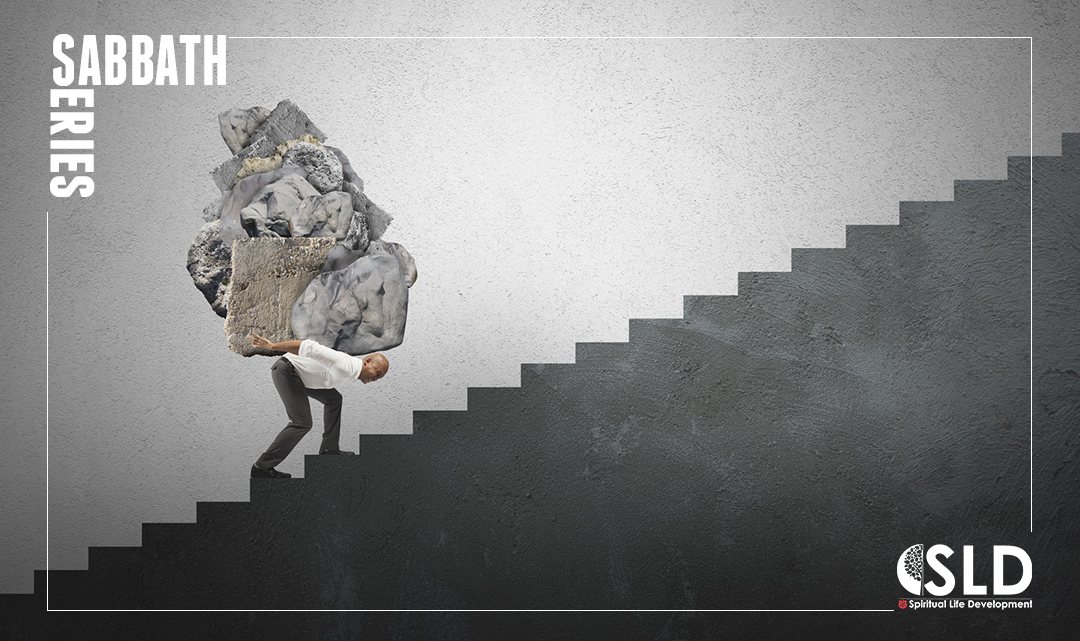 In a presentation to a gathering of officers Dr. Norman Raymond shared these statistics from a pastoral care consortium regarding those in all denominations of ministry. “90% work a 75 hour work week. 50% have considered leaving. 50% leave within the first 5 years of ministry.” The first statistic is telling for us. While, the first statistic shows the output in hours worked across denominations, an informal poll of several officers in our command shows that most work in the area of 60-65 hours. Some do hit the 70-75 hour range on a regular basis. This is especially true at Christmas time.
In a presentation to a gathering of officers Dr. Norman Raymond shared these statistics from a pastoral care consortium regarding those in all denominations of ministry. “90% work a 75 hour work week. 50% have considered leaving. 50% leave within the first 5 years of ministry.” The first statistic is telling for us. While, the first statistic shows the output in hours worked across denominations, an informal poll of several officers in our command shows that most work in the area of 60-65 hours. Some do hit the 70-75 hour range on a regular basis. This is especially true at Christmas time.
Our bodies are not made for that type of pounding. This on-going stress on body and emotion can be a precursor to obesity, diabetes and other life-threatening conditions. Further, it should be noted that living a year of stress like this will take at least two years to recover from its effects, according to Raymond’s presentation. Think about how we are shortening the number of productive years that we have as officers, by living this kind of life. Could this be part of the reason why many longterm officers, especially those on the field, come to the end of their active officership broken physically, even emotionally and some spiritually?
Why is it that we feel the need to work these hours and carry such heavy loads? Certainly, this is not living in the state of menuha (click here for more on menuha) which God intended for us. While not giving an excuse to stop working hard (because officership and ministry in general is hard) something has to give. Real change needs to happen and it must start at the root of the issue. First, I believe we are guilty of trying to be God. Marva Dawn in her classic book Keeping the Sabbath Wholly, posits that working such hours and trying to keep all of the balls in the air which seems to be required those of us in ministry comes from us trying to be like God. “Not only do we want to develop Sabbath practices of thanking God, but also we are helped enormously if we stop trying to be God.” Later, Dawn says, “We are hesitant to be vulnerable, so we hide behind masks in order to remain emotionally secure…Professional positions, finances, politics, technological solutions-are all part of the web of illusions that hide from us the fact that our security can only be found in a relationship with God.” Security and harmony are found in the Sabbath Day when we relinquish the illusion of control of image, control of appointment and control of others to the control of the Almighty. Sabbath Days are meant to be our time to connect with God and His purpose, not our perceived purpose from our earthly perspective.
Secondly, I believe we need to stop thinking that our ultimate goal as officers is to somehow be “productive” as we do now. Faithful ministry will produce the results that God wants. Productivity is not necessarily measured in how quickly we file reports or complete our statistics, as important as they are. I submit productivity from a biblical perspective is measured this way, “Therefore go and make disciples of all nations, baptizing them in the name of the Father and of the Son and of the Holy Spirit,” Matthew 28:19. Programs are a means for outreach but on their own do not make us productive in making disciples. Our best production may come in those times that are not necessarily considered productive as we have coffee with a soldier or take the Adventure Corps kids fishing.
The fact is all we are asked to do as officers is humanly impossible to do. However, if we make disciples from a heart that is regularly experiencing Sabbath menuha, God will be pleased. While officership requires many tasks be performed, ultimately we are called to this one; making disciples. Disciples cannot be produced from empty souls.
Bruggemann says, “Multitasking is the drive to be more than we are, to control more than we do, to extend power and our effectiveness. Such practice yields a divided self, full of attention given to nothing.”
Finally, I believe that this idea of productivity is adverse to Sabbath. As Walter Bruggemann shares we must practice Sabbath as a means of resistance. He sees it as a matter of us staying focused on the deep things of God and not trying to multi-task. Bruggemann says, “Multitasking is the drive to be more than we are, to control more than we do, to extend power and our effectiveness. Such practice yields a divided self, full of attention given to nothing.”
Recently, I sat in a soldiers’ meeting where the corps officers of this smaller corps had decided that Mondays were their day off. During the meeting, the congregation and officers described the need for more program supplies for certain ministries in the corps. The officer proceeded to take the order and suggested she would be running out “on her day off” to pick up supplies. When I asked why that would be, she shared the corps schedule. I wondered how it would be in this place, where there is not much staff, that I would adequately fulfill all the requirements of the day, while still trying to take a day off.
Written by Major Larry Ashcraft, Southwest Ohio and Northeast Kentucky Divisional Commander




